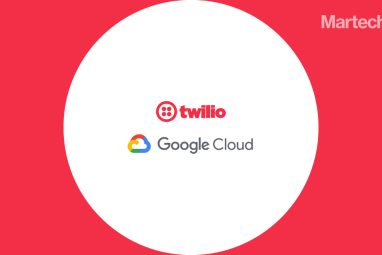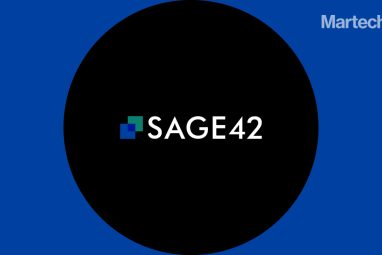Oribi raises $15.5 million to challenge Google Analytics with no-code marketing insights
Oribi, a no-code marketing analytics tool, has raised $15.5 million in a series B round of funding led by Ibex. The raise comes amid something of a boom for low-code/no-code platforms, spanning everything from web development and enterprise app-building to web testing, game development, and process automation. Founded out of Tel Aviv in 2015, Oribi […]
Topics

Oribi, a no-code marketing analytics tool, has raised $15.5 million in a series B round of funding led by Ibex. The raise comes amid something of a boom for low-code/no-code platforms, spanning everything from web development and enterprise app-building to web testing, game development, and process automation.
Founded out of Tel Aviv in 2015, Oribi is vying for a market that is dominated by Google Analytics, with the promise of clear, data-driven insights without the need to involve developers at any stage of the process. Using AI, Oribi automatically identifies, groups and tags all the various events (e.g. click, scroll, or log-in) visitors carry out and creates segments.
Moreover, Oribi can also be used to export information it has collected to other marketing tools (e.g. Facebook), customer relationship management (CRM) systems, and email management systems. This is what positions Oribi as a kind of “codeless alternative” to customer data platforms such as Segment.
Through the Oribi platform, marketers can analyse all their online sales and conversions by integrating with any website or marketing channel. According to founder and CEO Iris Shoor, this is the No. 1 problem that Oribi solves — correctly measuring marketing channels and activities.
“Today, it’s almost impossible to tell how much revenue each marketing channel drives and how different channels and activities work together,” Shoor told VentureBeat.
Insights could include what percentage of visitors to the pricing page choose a specific plan, or it may spotlight a new referrer that has sent a lot of traffic in the past week or what the top marketing channel is out of Google Facebook. This is all presented in a clear layout, designed to highlight the most critical insights from a company’s key metrics.
Elsewhere, Oribi lets users generate reports to share with managers or anyone else in the team, which can be customised to include logos, different colours and layouts. They can also be scheduled to publish and share automatically daily, weekly, or monthly.
While Google Analytics isn’t exactly difficult to use per se, often only requiring a little bit of code to be copy/pasted onto a website, the more dynamic a website is, the more complex Google Analytics becomes to set up, modify, and maintain.
“For large companies, it [Google Analytics] means adding code to the main website — it usually takes weeks to approve and might break other parts,” Shoor said.
“For smaller companies, not having an in-house developer means they stay with the original events they’ve set during the setup. Most companies point to data collection as their number one pain.”
Aside from Google Analytics, other notable players in the space include Mixpanel and Heap, which Shoor argues are more developer-oriented. Oribi, at its core, is all about bypassing long and resource-intensive integrations and democratising marketing analytics.
Oribi actually represents Shoor’s third startup, having founded PlanPlatform (formerly VisualTao) before selling it to Autodesk in 2009, and OverOps. This DevOps platform is still going strong as an independent company.
Her experience led the product and marketing teams at both these startups that ultimately led to Oribi.
“It always amazed me how complicated it was to answer the most basic marketing questions that every site owner needs answers to,” she said.
Before now, Oribi had raised just north of $12 million, and its latest $15.5 million tranches included return investors Sequoia, TLV Partners, and S-Capital, as well as newcomer MoreTech.





